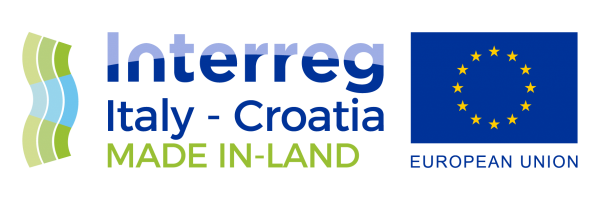
The Programme area is essentially composed of two very different, but interrelated, parts of territory: the hinterlands and the coastal belt. Inland areas are affected by marginalization processes which lead to an abandonment and decay of local resources. Natural and cultural assets of inland areas strongly needs to be valorised to revitalise local communities and preserve hinterlands from a number of threats such as hydrogeological risks, loss or depletion of biodiversity, collective services, traditional know how, infrastructures and facilities. On the other hand, coastline ecosystems, as primary economic development drivers and the most important elements of territorial brand, are overexploited and threatened by strong human pressures such masstourism, urbanization, land use conflicts. While natural environments of high ecological importance and scenic value, traditional arts and crafts, forestry and organic farming, rural tourism represent the most evident part of the unexploited capital that could contribute to the redevelopment of inner regions, opposite and counterproductive phenomena, as littoralization processes and seasonal/massive tourist flows, have already changed the coastal landscapes and are threatening natural and cultural assets survival. Therefore, MADE IN-LAND focuses on the natural/cultural heritage of inland areas that, rich of endogenous resources whether abandoned or still unexploited, have a high development potential for the whole Programme Area and develops a CB strategy which is based on a win-win cooperation between coastal areas and hinterlands to decrease human pressure on the firsts while unleashing the potential of natural/cultural assets of the seconds. The pj main objective is to enhance the protection and valorisation of natural and cultural unexploited capital of inland areas by means of tourism development and improved accessibility. MADE IN-LAND aims at setting up a new cross-border strategy that unleashes the potential of inland assets through their inclusion in wider networks and markets. The cooperation with coastal areas, considered as mass-tourism destinations, through the common and innovative means of integrated management, marketing and promotion foreseen by the pj, gives such opportunity to the inland areas and the pj regions as a whole. Such cooperation scales up the managing authorities development plans while coordinating/improving the provision of new services intended for inland communities. The diversification of local economy, development of job opportunities and services, social inclusion and containment of ageing phenomena and all other possible and required support to citizenship will soon follow, enhancing population’s wellbeing, which is a precondition for the conservation of natural/cultural heritage in the long term given the role played by local communities in their effective management.
Ammontare totale del costo progetto: € 2.218.069,31 €
Ammontare totale del finanziamento EU: 1.885.358,88 €
Quota Unicam (85% ERDF 211.350,42 € / 15% MISE 37.297,14 € ): Totale 248.647,56 €

